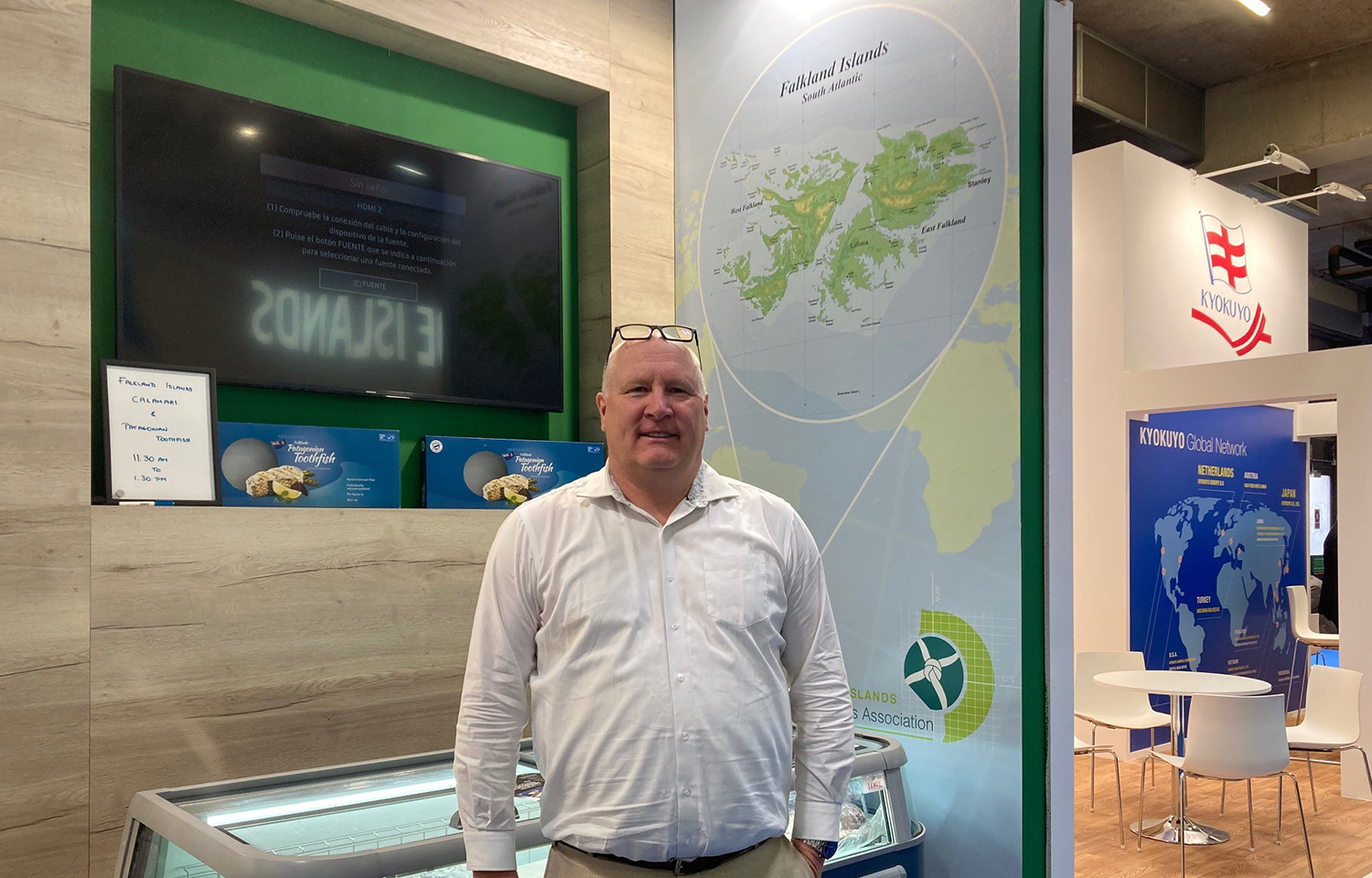The vast oil reserves buried around the Falkland Islands may represent the future of its economy, but fishing remains its biggest economic driver, accounting for 65 percent of the islands’ gross domestic product in 2023.
“It remains a massive deal,” Falkland Islands Fishing Companies Association Executive Secretary James Bates told SeafoodSource at the 2024 Seafood Expo Global in Barcelona, Spain on 23 April.
The islands, which lie 300 miles east of Argentina in the Southern Atlantic Ocean, and control of which was contested in a war between Argentina and the United Kingdom in 1982, are self-governing, though they remain a part of the U.K. They play host to a fleet of vessels fishing year-round for a diverse range of species, including loligo and illex squid, southern blue whiting, hake, king clip, red cod, rock cod, and Patagonian toothfish.
“We're responsible about our fisheries. For us, it’s fair to say that everybody's life in the Falklands is impacted by the fishing industry in one way, shape, or form. Obviously, the government receives license fees and corporation taxes, and that goes on to fund our government and life on the islands,” Bates said. “The government of course is keen and enthusiastic to explore other sort of revenue streams, because obviously you can't have all your eggs in one basket. But at the moment, and probably for the next few years, at least, fishing will remain the number-one industry of importance to the Falklands.”
While the Falklands’ government maintains control over its exclusive economic zone, which stretches 200 miles out from the islands except where it bumps up against Argentina’s EEZ, the area is a popular destination for distant-water vessels from other nations, particularly China.
Argentina estimates annual losses of ARS 2.6 billion (USD 25.5 million, EUR 22.5 million) tied to illegal, unreported, and unregulated (IUU) fishing in its waters, and has invested in expanding the surveillance and control capacity of maritime resources in a move to stop those losses. In an April 2020 incident, about 100 mostly Chinese-flagged squid jiggers were allegedly caught fishing illegally in Argentina’s national waters with their automatic tracking devices turned off, leading to a Argentine Coast Guard opening fire on one of the vessels.
“The Southwest Atlantic is the largest body of water in the in the world without a RFMO [regional fisheries management organization] and that’s something the Falkland Islands are very keen to see put in place,” Bates said. “There's no getting around the fact that you can see the Chinese long-distant fishing fleet from space even, and so we are crying out for cooperation, for an RFMO for the region that will include the likes Great Britain, Argentina, and the Falklands that puts politics aside and focuses on the bigger the larger good.”
Bates acknowledged the historical tensions between the parties could complicate the process.
“The process will have to proceed ...








